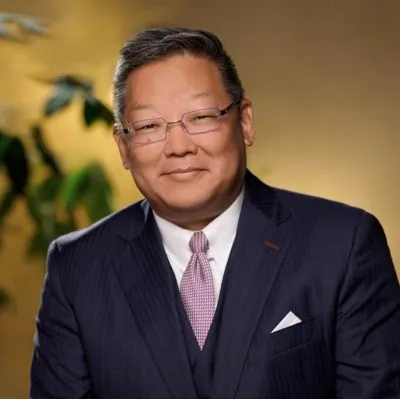Dr. Michael Suk on leadership in lifestyle medicine
The chairman of the American Medical Association Board of Trustees—an ABLM diplomate since 2020—has emerged as a high-profile and passionate advocate for lifestyle medicine and its potential to transform health and healthcare
By Alex Branch
ACLM Director of Communications
April 3, 2025

 Michael Suk, MD, JD, MPH, MBA, DipABLM
Michael Suk, MD, JD, MPH, MBA, DipABLM
American Medical Association (AMA) Board of Trustees Chair Michael Suk, MD, JD, MPH, MBA, DipABLM, is a vocal leader on public health issues, healthcare transformation, payment models, high-value care, addressing the social drivers of health, as well as clinician and resident doctor satisfaction. He also speaks passionately about supporting health through connections with nature, outdoor recreation and unstructured play.
Certified in lifestyle medicine by the American Board of Lifestyle Medicine since 2020, Dr. Suk has emerged as powerful advocate for the integration of lifestyle medicine in healthcare. Recently, he was featured on AMA news channels discussing why lifestyle medicine is growing so quickly, the benefits of earning certification and how applying the lifestyle medicine pillars can help prevent chronic disease.
The American College of Lifestyle Medicine (ACLM) was inducted into the AMA House of Delegates in 2024.
In January, ACLM launched the campaign “Leadership Matters: Influence, Inspire, Impact!” to showcase leaders in lifestyle medicine and how leadership can inspire meaningful change. As part of that initiative, ACLM asked Dr. Suk about his thoughts on leadership, how leadership positioned him to advocate for lifestyle medicine and how other lifestyle medicine clinicians can prepare themselves for leadership roles.
Q: How do leadership positions enhance one’s ability to promote and advance lifestyle medicine?
A: Leadership positions provide a platform to amplify the principles of lifestyle medicine on a systemic level. As an orthopedic surgeon and executive leader, my position allows me to influence organizational strategies, prioritize prevention and wellness, and integrate lifestyle medicine principles into clinical care pathways. For example, leaders can advocate for policies promoting physical activity, better nutrition, and stress management in healthcare systems and broader communities. Leadership also enables the development of interdisciplinary collaborations, such as integrating lifestyle medicine into orthopedic rehabilitation programs or public health initiatives.
By leveraging a leadership role, a clinician can bridge the gap between individual patient care and population health, demonstrating the cost-effectiveness and transformative potential of lifestyle medicine on a larger scale. This approach aligns with a focus on connecting nature, health, and the outdoors, creating a sustainable impact that resonates with personal and professional values.
Q: What are examples of your successes advocating for lifestyle medicine from a position of leadership?
A: A notable example of success has been my role in promoting outdoor activity and nature as a form of preventative health. Through leadership in organizations like the AMA, one may influence initiatives that highlight the health benefits of connecting patients with nature and encouraging outdoor play. That can include advocating for green spaces and parks as integral to public health planning.
Another example has been the integration of lifestyle medicine principles into orthopedic care. For instance, promoting weight management through nutrition and exercise programs to improve joint health, prevent injuries, or aid in recovery. These efforts demonstrate the efficacy of lifestyle medicine in reducing healthcare costs and improving patient outcomes.
Looking ahead, I envision furthering this mission by developing programs that incorporate lifestyle medicine into postoperative care protocols, using data analytics to track outcomes and prove the model’s value.
Q: What advice would you give other lifestyle medicine diplomates who would like to position themselves for leadership positions?
It’s important to remember that anyone can be a leader. But here is some advice I give to individuals interested in positioning themselves for organizational leadership roles.
- Develop a vision and narrative: Clearly articulate how lifestyle medicine can address current healthcare challenges such as chronic disease burden, healthcare costs, and patient engagement. Your ability to connect lifestyle medicine to larger organizational goals will make you a more compelling leader.
- Leverage your unique expertise: Highlight the connection between your clinical experience and lifestyle medicine principles. For example, as an orthopedic surgeon, I emphasize the role of physical activity and nutrition in musculoskeletal health, and I connect this to system-wide initiatives.
- Expand your influence: Seek out leadership opportunities in multidisciplinary teams, advocacy groups, and public health organizations. Building coalitions and fostering partnerships is critical to advancing lifestyle medicine.
- Focus on outcomes: Use data and success stories to demonstrate the tangible benefits of lifestyle medicine. Leaders who can tie lifestyle medicine initiatives to measurable improvements in health outcomes, patient satisfaction, and cost savings are more likely to gain institutional support.
- Cultivate emotional intelligence (EQ): Build trust, inspire others, and foster collaboration. A leader’s ability to connect with and motivate diverse stakeholders is essential in advancing lifestyle medicine within organizations.